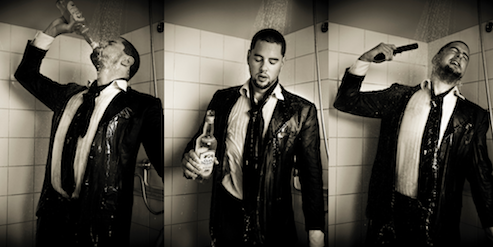
The management consultant our chief executive had hired to restructure the company and deal with troublemakers like me walked into my office, shut the door behind him, and coldly said, “You may want to sit down.”
That’s how the meeting began and my first job as an executive at a successful startup ended. The CEO who brought me on board with great fanfare two years before didn’t even have the stones to fire me himself. Instead, he sent his lackey to do his dirty work.
To be fair, they gave me a nice package and called it a layoff, but I knew what it was. I’d become expendable. More trouble than I was worth. Maybe “toxic” is a better word. It’s true. I was young and arrogant. I kept pushing to spin off my business unit as an independent company. Guess I pushed too hard.
I didn’t realize it at the time, but it was for the best. They gave me a good reference and years later – when they finally realized I was right – I returned the favor and referred them to a CEO who took my former business unit public. The guy made a fortune in the IPO and everyone was happy.
That was 25 years ago.
I used to think getting fired was a rite of passage for executives who push the envelope. Having since covered the comings and goings of hundreds of top executives, I’ve come to realize it’s really just business as usual in the corporate world. And since few speak openly on the subject, I wanted to share a few lessons I learned the hard way.
Realize you’re not alone. Don’t be fooled by the positive spin press releases — most sudden resignations are thinly veiled ousters. CEOs usually get two choices: get canned or step down. Which would you choose? Pfizer’s Jeff Kindler, Mark Hurd at HP, Nest CEO Tony Fadell, Zenefits founder Parker Conrad — if it happens to you, don’t feel too bad; you’re in good company.
Deal in the moment, not in the past. Soon-to-be-ousted executives usually know something is up. Sometimes they’re in over their heads and are relieved when it’s over. Still, when it happens, that punch in the gut really takes the wind out of you. Take a deep breath, compose yourself, and start negotiating. Leave the past in the past and use your years of accomplishments to get a better deal. You have more leverage than you think. Nobody wants enemies, least of all corporations with brands to protect.
It’s usually a blessing in disguise, but that’s not automatic. Steve Jobs once said that getting fired from Apple was the best thing that could have happened to him, but he left out one very important point: It’s a hell of a lot easier to play the victim who got screwed than take a good hard look in the mirror and face the truth that you had it coming. If you do it right, you’ll land on your feet and be better off for the experience.
Don’t make mistakes you have to live with. A former boss once told me that. He was glibly referring to a nasty divorce, but I’ve found it applies to business relationships as well. Keep your cool and don’t burn any bridges. Remember, it’s a small world and time heals all wounds. You’d be surprised how often people you once considered enemies turn out to be friends — with great connections.
However the relationship ended and whoever did what to whom, nearly every boss I’ve ever had ended up doing right by me, and vice versa. Likewise for those I sent packing over the years. You can’t help but take it personally at the time, but that doesn’t mean you should act like a wounded child. If you behave like a mature professional, it’ll pay off in the long run.
Image credit Hardleers via Flickr
A version of this originally appeared on Fortune.com.